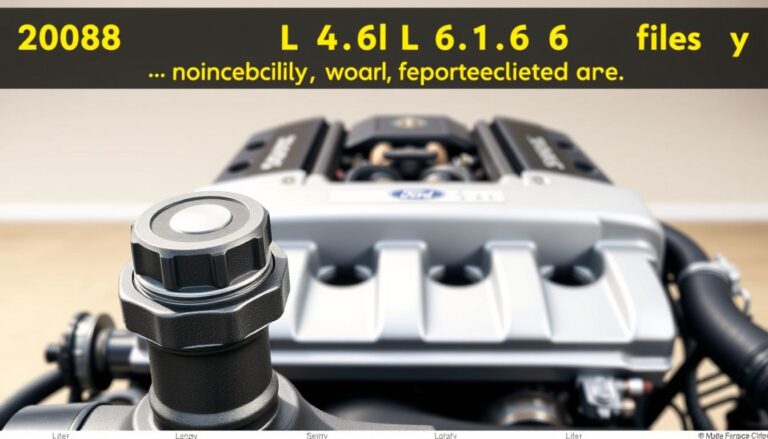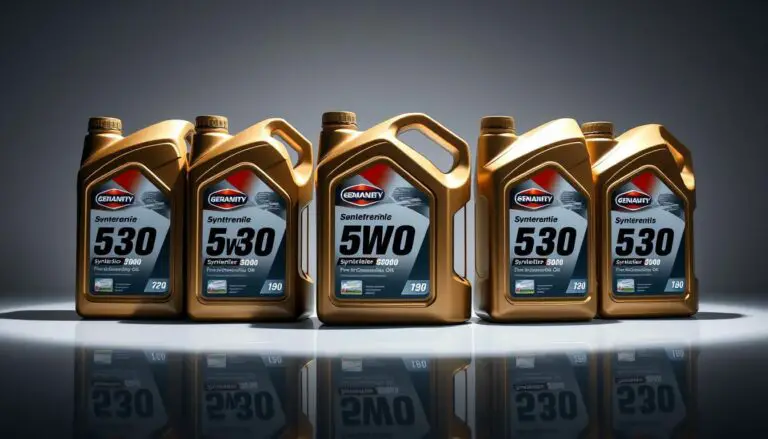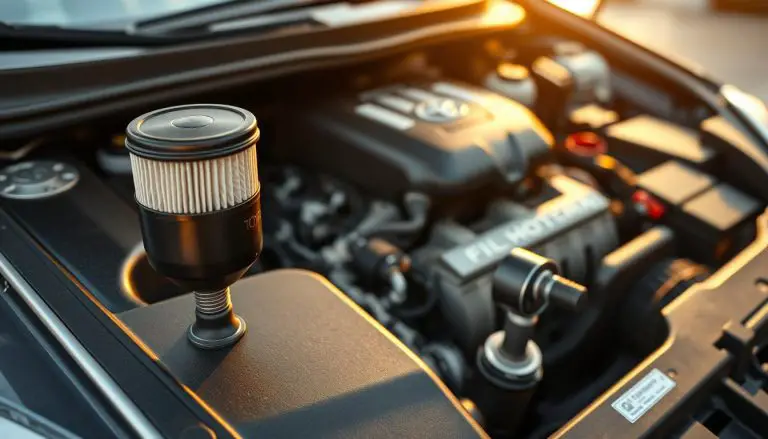Grasping the complexities of BMW oil leaks is imperative for the preservation of your vehicle’s integrity. An oil leak precipitates a cascade of detrimental consequences if not rectified expeditiously.
Identifying the symptoms and comprehending the causes of an oil leak constitute the foundational steps in mitigating its impact. The repair cost fluctuates extensively, contingent upon the leak’s intensity and the requisite corrective measures.
For proprietors of BMWs, cognizance of the average repair prices is instrumental in financial planning and budgeting for potential interventions. It is paramount to address an oil leak with alacrity to avert additional vehicular deterioration.
Key Takeaways
- Understanding the symptoms of a BMW oil leak is crucial for early detection.
- The causes of an oil leak can vary, affecting the repair approach.
- Repair costs can differ significantly based on the leak’s severity.
- Awareness of average repair prices helps BMW owners plan for expenses.
- Prompt action is necessary to prevent further vehicle damage.
Understanding BMW Oil Leaks
For BMW owners, grasping the nuances of oil leaks is paramount to preserving their vehicle’s integrity. These leaks can precipitate a decline in engine performance, elevate the risk of engine damage, and incur substantial repair costs if neglected.

Common Oil Leak Issues in BMW Vehicles
Despite their reputation for excellence in performance and luxury, BMWs are susceptible to oil leak problems. Leaks frequently manifest in the valve cover gasket, oil filter housing gasket, and oil pan gasket. Such maladies can stem from wear and tear, suboptimal maintenance, or inherent design shortcomings.
Impact of Oil Leaks on Vehicle Performance
Oil leaks can profoundly affect the performance of BMW vehicles. They can result in diminished oil levels, contributing to increased engine noise, reduced fuel efficiency, and potentially, engine failure if not promptly rectified. Thus, it is imperative to conduct regular inspections and maintenance to avert these issues and uphold the vehicle’s longevity.
Recognizing the Symptoms of BMW Oil Leaks
The manifestations of an oil leak in a BMW span from discernible oil spots to a decline in engine performance. It is imperative for BMW proprietors to be cognizant of these indicators to avert further engine deterioration and the resultant expensive repairs.
Visual Indicators of Oil Leakage
The most prevalent sign of an oil leak is the appearance of oil spots or drips beneath the vehicle. Inspect your garage floor or driveway for any evidence of oil leakage. Further, scrutinize the underside of your BMW and the vicinity of the engine compartment for oil residue.

Performance-Related Symptoms
An oil leak can significantly impair your BMW’s performance. Symptoms encompass diminished engine power, a decline in fuel efficiency, or an escalation in engine noise. These maladies arise from the engine’s inadequate lubrication, resulting in augmented friction among its components.
Warning Lights and Dashboard Indicators
Modern BMWs are endowed with advanced diagnostic systems. An oil leak can provoke warning lights on your dashboard, such as the oil level warning light or the check engine light. These indicators signify an issue that necessitates immediate resolution.
| Symptom | Description |
|---|---|
| Oil Spots | Visible oil drips under the vehicle |
| Performance Issues | Decreased power, reduced fuel efficiency |
| Warning Lights | Oil level or check engine lights on the dashboard |
Primary Causes of Oil Leaks in BMW Vehicles
For BMW proprietors, grasping the fundamental causes of oil leaks is imperative. Such leaks can precipitate substantial engine deterioration if not rectified expeditiously. Several pivotal components are susceptible to failure, thus inducing oil leaks.
Valve Cover Gasket Failures
The valve cover gasket is a prevalent source of oil leaks in BMW vehicles. It deteriorates over time due to heat and age, losing its sealing efficacy. When the valve cover gasket fails, oil can leak onto the engine, potentially causing damage to other components.
Oil Filter Housing Gasket Issues
Another frequent cause of oil leaks is the failure of the oil filter housing gasket. This gasket can become brittle and crack, allowing oil to escape. Regular inspection of the oil filter housing gasket is essential to prevent unexpected leaks.
Oil Pan Gasket Deterioration
The oil pan gasket is also susceptible to deterioration, notably in older BMW models. As the gasket ages, it can lose its ability to seal properly, leading to oil leaks. Replacing the oil pan gasket can be a cost-effective solution to this common issue.
By understanding these primary causes of oil leaks, BMW owners can take proactive steps to maintain their vehicles and prevent costly repairs.
Secondary Causes of BMW Oil Leaks
Several secondary factors contribute to oil leaks in BMW vehicles, aside from primary causes. These less common issues can be equally troublesome and necessitate prompt attention to avert engine damage.
Front Crankshaft Seal Problems
The front crankshaft seal is pivotal in preventing oil leakage from the engine. It deteriorates over time due to wear and tear, resulting in oil leaks. Symptoms include oil spots on the ground and a decrease in oil levels. Replacing the front crankshaft seal demands specialized tools and mechanical expertise.
Timing Cover Gasket Failures
The timing cover gasket is another potential source of oil leaks. As it ages, it becomes brittle and cracks, allowing oil to escape. Regular inspection can help identify this issue before it escalates. Replacement entails removing the timing cover and installing a new gasket.
VANOS Sealing Issues
The VANOS system in BMW engines can also be a source of oil leaks if the seals fail. VANOS sealing issues can lead to oil leakage and impact engine performance. Diagnosing VANOS-related leaks necessitates a comprehensive understanding of the system’s operation and components.
Addressing these secondary causes of BMW oil leaks is imperative for maintaining engine health and preventing costly repairs in the future.
BMW Oil Leak Repair Cost: Symptoms, Causes & Average Repair Prices Breakdown
The cost of rectifying BMW oil leaks is subject to a multitude of variables, encompassing the model, year, and precise location of the leak. Grasping these elements is paramount for BMW proprietors to effectively plan their repair expenditures.
Factors Affecting Repair Costs
Several pivotal factors dictate the expense of BMW oil leak repairs. These encompass:
- The location and severity of the leak
- The type of parts necessitated for the repair
- Labor costs, which exhibit considerable variability
Dealership vs. Independent Shop Pricing
BMW proprietors frequently ponder the decision between utilizing a dealership or an independent mechanic. Dealerships generally command higher labor rates but employ OEM components and possess specialized training. Independent mechanics, conversely, might present lower labor fees and competitive pricing on parts, provided they possess a proven track record in BMW repairs.
| Service Provider | Labor Cost | Parts Cost | Total Cost |
|---|---|---|---|
| Dealership | $150-$300 | $200-$500 | $350-$800 |
| Independent Shop | $100-$250 | $150-$400 | $250-$650 |
DIY Repair Considerations
For those contemplating a DIY approach, it is imperative to consider the advantages and disadvantages. While DIY can potentially reduce labor expenses, it necessitates specialized tools and expertise. Incorrect repairs can precipitate additional damage and escalate costs over time.
Average Repair Costs by BMW Model Series
The cost of rectifying oil leaks in BMWs exhibits considerable variability across distinct model series. This disparity stems from the inherent differences in engine architecture, complexity, and the components integral to the repair methodology.
3 Series Oil Leak Repair Costs
The BMW 3 Series, celebrated for its exceptional performance and handling prowess, harbors specific locales susceptible to oil leaks. Predominant issues manifest as leaks emanating from the valve cover gasket and the oil filter housing gasket. Repair expenditures for the 3 Series typically span between $500 and $1,500, contingent upon the leak’s severity and prevailing labor rates.
5 Series Oil Leak Repair Costs
The 5 Series, distinguished by its larger stature and enhanced complexity vis-à-vis the 3 Series, often incurs higher repair costs. This is attributed to its more intricate engine design. Leaks in the 5 Series frequently occur around the oil pan gasket and timing cover gasket. Repair costs for this model series typically fall between $800 and $2,000, influenced by factors such as the model year and prevailing labor rates.
X Series Oil Leak Repair Costs
The X Series, BMW’s SUV lineup, presents unique challenges for oil leak repairs. This is due to their larger engines and sometimes more complex engine configurations. Common leak points include the oil filter housing and front crankshaft seal. Repair costs for the X Series can range from $1,000 to $3,000, reflecting the complexity and the parts necessitated for the repair.
Engine-Specific Oil Leak Issues and Costs
BMW owners must grasp the nuances of engine-specific oil leak issues, as distinct engines exhibit unique vulnerabilities. The N52, N54/N55, and B58 engines, each with its own leak characteristics, necessitate a detailed understanding. This discourse will explore the prevalent leak points and the repair expenditures for these engine variants.
N52 Engine Common Leak Points
The N52 engine, prevalent in numerous BMW models, is celebrated for its dependability. Yet, it is susceptible to oil leaks. The valve cover gasket and oil filter housing gasket are frequently affected, leading to leaks. These gaskets, subject to degradation, necessitate replacement, a procedure that can cost between $500 and $1,000, contingent upon labor rates and the severity of the damage.
N54/N55 Engine Oil Leak Concerns
The N54 and N55 engines, distinguished by their turbocharged prowess, harbor specific oil leak concerns. Leaks often manifest in the high-pressure fuel pump and oil drain lines. The turbocharger also poses a risk for oil leaks. Addressing these issues demands specialized labor and parts, elevating repair costs to between $1,000 and $3,000.
B58 and Newer Engine Sealing Improvements
The B58 engine and its successors have witnessed substantial advancements in sealing technology, diminishing oil leak occurrences. The integration of enhanced gasket materials and improved engine design has contributed to enhanced oil retention. Though not impervious to leaks, the B58 engine exhibits a reduced propensity for oil leaks compared to its predecessors. For B58 engines, any oil leak issues are typically less severe and less frequent, potentially reducing repair costs.
Repair Costs by Specific Leak Location
Accurate identification of an oil leak’s origin is paramount for cost estimation. The repair expenses vary significantly based on the component’s complexity, labor requirements, and part costs.
Valve Cover Gasket Replacement Costs
The valve cover gasket is a prevalent source of oil leaks in BMWs. Replacement costs typically range from $300 to $800, influenced by model specifics and labor rates. Cost variations stem from the type of gasket and the labor hours necessitated.
Oil Pan Gasket Repair Expenses
Oil pan gasket leaks are often more intricate and expensive to rectify. The average repair cost ranges from $500 to $1,200, influenced by job complexity and the necessity for additional repairs. Labor costs are a significant determinant due to the time required for access and replacement.
Oil Filter Housing Gasket Replacement
Failures in the oil filter housing gasket are common. Replacement costs typically range from $400 to $900, influenced by engine type and the need for additional component replacements.
VANOS Seal Repair Pricing
The VANOS seal is critical, and its failure can cause oil leaks. Repairing or replacing the VANOS seal can cost between $500 and $1,500. The complexity of the repair and the necessity for specialized tools significantly impact the overall cost.
Accurate diagnosis of the oil leak’s location is crucial for a precise repair cost estimate. Consulting with a professional mechanic or a BMW specialist can offer a detailed cost breakdown.
Long-Term Consequences of Untreated Oil Leaks
Untreated oil leaks can precipitate a cascade of detrimental effects on your BMW’s performance and longevity. If not rectified, these leaks can engender a multitude of complications, impacting the vehicle’s functionality and broader environmental and financial spheres.
Engine Component Damage
The most critical consequence of untreated oil leaks is the potential for engine component damage. Insufficient lubrication of vital engine parts, resulting from oil leaks, can cause increased wear and tear, overheating, and potentially catastrophic engine failure. For instance, the N52 engine, commonly found in BMW vehicles, is notably vulnerable to damage from oil leaks due to its intricate design and the paramount importance of proper lubrication.
Environmental Impact
Oil leaks also exert a considerable environmental impact. Leaked oil can contaminate soil and groundwater, posing a risk to local ecosystems. Further, oil spills can result in slippery roads, escalating the risk of accidents. It is imperative for BMW owners to address oil leaks expeditiously to avert these environmental hazards.
Decreased Resale Value
Neglecting oil leaks can also diminish your BMW’s resale value. A history of oil leaks, if not adequately addressed, can deter potential buyers, leading to a decrease in the vehicle’s market value. Maintaining detailed records of repairs and regular maintenance can help mitigate this issue.
In conclusion, the long-term consequences of untreated oil leaks in BMW vehicles are multifaceted, affecting not only the engine’s performance but also the environment and the vehicle’s resale value. Prompt action is essential to avoid these outcomes.
Preventative Maintenance to Avoid Oil Leaks
Adopting a proactive maintenance regimen is imperative for the prevention of oil leaks and the preservation of your BMW’s longevity. This approach enables the early detection of potential issues, averting their escalation into significant malfunctions.
Adherence to recommended service intervals constitutes a fundamental strategy within preventative maintenance. BMW delineates a maintenance schedule, encompassing tasks such as oil changes, filter replacements, and comprehensive inspections. Adherence to this schedule is pivotal, as it ensures the optimal condition of all components, thus preventing oil leaks.
Recommended Service Intervals
Adherence to the stipulated service intervals is paramount for the sustenance of your BMW’s health. This regimen includes regular oil changes, necessitating the utilization of high-quality oil that conforms to BMW’s standards. BMW’s guidelines typically advocate for oil changes every 5,000 to 7,500 miles, contingent upon the model and prevailing driving conditions.
Quality of Oil and Filters
The utilization of high-quality oil and filters is a critical facet of preventative maintenance. BMW prescribes the specific oil and filters to be employed in their vehicles. The correct application of these components is instrumental in preventing leaks, ensuring the proper lubrication and protection of the engine and its constituent parts.
Early Warning Signs to Monitor
Attentiveness to early warning signs of potential oil leaks is equally crucial. Indicators may include oil spots beneath the vehicle, a burning oil odor, or a decrease in oil level between scheduled changes. Regular monitoring of your BMW’s condition and prompt resolution of any identified issues can effectively mitigate minor problems from escalating into extensive repairs.
Conclusion
The imperative of comprehending and rectifying BMW oil leaks cannot be overstated, as it directly impacts the vehicle’s performance and longevity. This discourse has offered a comprehensive examination of the manifestations, etiologies, and repair expenditures linked to BMW oil leaks.
Summarily, the ability to discern visual cues, performance-related symptoms, and warning lights is paramount in early leak detection. Predominant causes encompass valve cover gasket failures, oil filter housing gasket malfunctions, and the degradation of oil pan gasket integrity. The financial burden of repairs fluctuates, contingent upon the model series, engine configuration, and the precise location of the leak.
Preventive maintenance emerges as the linchpin in averting exorbitant repair costs. Adherence to regular service schedules, utilization of premium oil and filters, and vigilance towards early warning signs are instrumental in leak prevention. Through proactive measures, BMW proprietors can significantly reduce the likelihood of engine damage, environmental degradation, and diminished resale value.
In conclusion, an informed approach towards BMW oil leaks can yield substantial savings in both time and financial resources. By grasping the symptoms, causes, and repair expenditures, owners can proactively safeguard their vehicle’s integrity, ensuring a seamless driving experience.
FAQ
What are the common symptoms of a BMW oil leak?
Visible oil spots under the vehicle, a decline in engine performance, and dashboard warning lights signaling low oil levels or engine malfunctions are indicative of an oil leak in BMWs.
What causes oil leaks in BMW vehicles?
Failures in the valve cover gasket, oil filter housing gasket, and oil pan gasket are primary causes of oil leaks in BMWs. Issues with the front crankshaft seal and timing cover gasket also contribute to this problem.
How much does it cost to repair a BMW oil leak?
The cost to rectify an oil leak in a BMW is highly variable. It depends on the leak’s location, the vehicle’s model, and whether repairs are conducted at a dealership or an independent shop. Prices can range from a few hundred to several thousand dollars.
Can I drive my BMW with an oil leak?
While minor oil leaks might not immediately hinder driving, it is not advisable to ignore them. Neglecting oil leaks can lead to a decline in engine performance, potential engine damage, and environmental hazards due to oil spills.
How can I prevent oil leaks in my BMW?
Adherence to recommended service intervals, the use of high-quality oil and filters, and vigilance for early signs of leaks are key preventative measures. These include monitoring for decreased engine performance or dashboard warning lights.
Are DIY repairs for BMW oil leaks feasible?
For those with mechanical expertise, DIY repairs for BMW oil leaks can be viable. It is crucial, though, to assess the repair’s complexity, the availability of specialized tools, and the risk of further damage if not executed correctly.
Do newer BMW engines have fewer oil leak issues?
The B58 engine and newer models have seen advancements in sealing technology, potentially reducing oil leak occurrences. Despite this, owners must still adhere to preventative maintenance guidelines to mitigate risks.
How do I know if my BMW oil leak is serious?
The gravity of a BMW oil leak can be assessed by monitoring oil loss rates, inspecting for engine damage, and observing any performance changes or dashboard warning lights.


